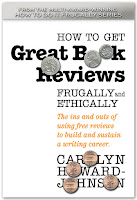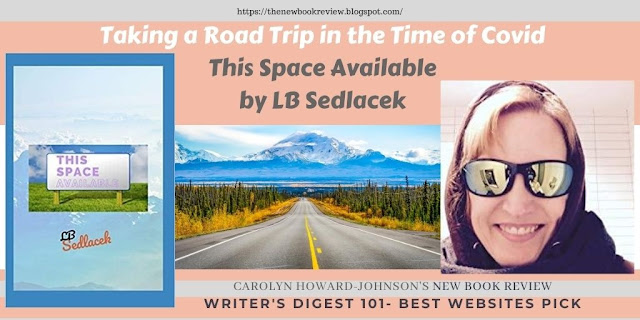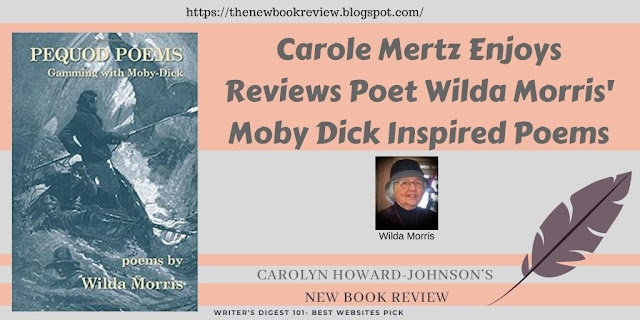“The Singing Lines of Theresa Rodriguez: A Review of Sonnets”
by Andrew Benson Brown
Title: Sonnets
Author: Theresa Rodriguez
Publisher: Shanti Arts LLC
Publisher Website: www.shantiarts.com
ISBN: 978-1951651350
Released July 2020
$12.95 (print, soft cover, perfect bound)
80 pages
Theresa Rodriguez was called "The Sonnet Queen" by one of her other appreciators following a recent public reading she gave. While there are a few other women, and not that many more men, who have written and published sonnets in our time (not exactly a popular genre compared to the fad of 'instapoetry'), she is the only contemporaneous 'female sonneteer' I know of—which is to say, the only woman who has written many sonnets, a la Shakespeare, and published a book exclusively devoted to the craft.
In his literary criticism, William Empson showed a subtle attention to what he called “the singing line.” In her new collection of poetry, Sonnets, Rodriguez raises this concern for the musicality of verse to a spiritual level. Take the first stanza of ‘The Sacred Harp:’
The music, oh the music starts, and we
Begin to sing in skillful harmony;
Begin to sing in sweet simplicity;
Begin to sing in deep complexity.
As both a poet and a trained classical singer, Rodriguez is more consciously aware of the musicality of poetry than most, and it is not surprising that other poems in this collection such as ‘The Piano,’ and ‘Oh, When I Hear,’ also take music as a subject. Most are of course not directly about music, per se, though all display the melodious qualities of regular meter and perfect rhyme. Those that do take music as their surface-level subject are really avenues of exploring larger themes: a panegyric to a Steinway as an expression of ideal beauty, suffering as a path to “where a truth, so sacred, may be found,” and, in ‘The Sacred Harp,’ the worship of God’s mystery.
In just these three poems, Rodriguez’s work captures what poetry (and I would add, most great art in general) is meant to do: to capture truth, beauty, and goodness. Poets, those writers who carefully order their words to make of it a musical language and to use metaphors liberally, are those beings most suited to drawing comparisons in the order of creation. Rodriguez seems to implicitly understand this idea that poetry is, perhaps after pure music, the straightest vehicle to God. ‘Sonnet for the Sonnet-Maker,’ is addressed to God Himself, and draws our attention to how the elegance of iambic pentameter dominates so much of the King James Bible:
You know the beats and rhythms, the iamb
Which pulses like a crippled-legged walk;
You, with the force of one who said, “I am
That I am,” in iambs you will talk
Of truth and beauty, pain and sorrow, all
And nothing, touching both Heaven and Hell
In what you speak and say…
“Cripple-legged walk” is a brilliant detail: a phrase that at once mimetically describes the iambic line, and with it our relationship to God. It finely illustrates Aquinas’s concept of analogical predication, and how words may be understood two different ways as they apply to two different levels of being. God, “I am that I am,” knows the “beats and rhythms” of the iamb, and communicates to us in His “cripple-legged walk” because we, as bipedaled, fallen creatures, must use words to hobble towards He who soars. In ‘Sonnet Sonnet’ Rodriguez repeats this imagery with variation to refer to the three poets with sonnet forms named after them. Being mere mortals (though ones who approach the divine closer than others), the “cripple-rhythmed beauty” of Petrarch, Shakespeare, and Spenser is emphasized for their more delimited abilities to exercise “Condensed and distilled thought,” rather than to touch Heaven and Hell or to recall the void.
In ‘CCP and Falun Gong Sonnet,’ the first-person narrator awakens on an operating table with one or two less internal organs: “Go, invoke / your party loyalty as I am cut / And mutilated.” From communing with the deities in golden ages of yore, we have degenerated to living in a Kafkaesque world where the muse is an anonymous bureaucrat singing of zoning laws.
Rodriguez expresses her own sense of belief in opposition to pernicious modern tendencies in the sonnet, ‘In This Post-Christian Era,’ as well as in a number of other poems in the collection that explore her faith. These tend to come in the latter half of the book; they are preceded by reflections on the art of sonnet-writing and relationships, and precede in turn final poems on the decay of time. One might roughly divide the collection into four sections dominated by these themes (though there are also a few on political and historical subjects interspersed throughout). The move from writing, to love, to God, to the passing of things would seem to be no accident, and this framework offers further proof that Theresa Rodriguez is an artist who speaks to the soul.
The straightforwardness of many titles (‘Spenserian Sonnet,’ ‘Petrarchan Sonnet,’ etc.) are mirrored in the candor of Rodriguez’s personal, often self-conscious, reflections on all of the topics mentioned; and the variety of sonnet-styles she mixes (sometimes within a single poem) echo the variety of topics. The pathos of certain poems is balanced by a mimetic wit in others. In ‘Enjambment sonnet,’ the lines begin in terse sentences that give way to longer ones that flow over, preventing isolation between lines. The weight of the line is shifted to the beginning and middle rather than the end, as the addressee is enjoined to
Dissent! The point
Is to surprise. Surprise! Then negate
All smoothed-out evenness.
The carefully chosen end word “point” gives a sense of periodization before rushing us along to the next line, as the author “negates” the usual expectations of the poetic line. The brief imperative, “Think!” is sandwiched at the midpoint of the line before the final couplet. “And then think more,” we are told. Theresa here shows us that the art of poetry, while inventive, is more than mere spontaneity. In the equally clever ‘Five Minute Sonnet,’ the narrator opens the first stanza relating doubts as to whether such a thing can be done, increases in confidence during the second stanza, and describes the flow of how, “The lines just come so quickly to my mind,” in the third, until hitting writer’s block in the final couplet. Artlessness in art is not really a thing, aside from occasional brief spurts as the one that resulted in Coleridge’s ‘Kubla Khan,’ following waking from an opium dream. Lacking drugs for stimulation, most examples of effortlessness are only apparent—the Muse only descends upon one after long reflection. Examples of pure spontaneity that contemporary free-verse poets often brag about are simply the results of museless minds.
In poems like ‘Annelid Sonnet,’ ‘Cut Sonnet,’ and ‘Homeless Sonnet,’ each titular analogy is at once partly autobiographical, a description of her subject matter on love or pain, and a metaphor for the artistic process. In ‘Sonnet of the Hardened Heart,’ she employs crustaceous imagery to create an analogy with the relation between flesh and spirit:
Care less, I warn myself; bother no more
With inner crevices: prying the shell
Like scabs (rough, oozing, sore), which crust, but tell
Of tumults against the psychic seabed floor;
It is in vain.
She goes on to pile images on top of one another to convey a sense of being “entombed” within her existence: “the meat” is like “newborn skin” and “the vaginal flower.” The effect on display here is an example of William Empson’s second of the seven types of ambiguity he describes in his book of that name: when two or more meanings are resolved into one for purposes of building psychological complexity.
Rodriguez often undertakes to explore her conceptual themes through a repetition of abstract words. Most of these occur in poems about the self-reflexivity of writing, and occasionally in poems about capturing the divine. In ‘Earl of Oxenford’s Sonnet’ she defines a term with itself (“For truth is truth, and you do shake a spear…”) to justify the narrator’s euphoria in discovering the Oxfordian theory of Shakespeare authorship. In ‘Form Sonnet’ there is the nested identification-turned-negation of
….the freedom that free form can miss.
For freedom in most freedom is remiss
In finding beauty in this poetry.
Rodriguez here highlights the contradictory nature of free verse: that through its own lack of discipline it loses the quality it seeks to define itself through. Referring then to her own penchant for poetic structure she writes, “In building such some scoffers might dismiss: / But such is perfect perfection to me.” Here the placement of “perfection” upsets the hitherto perfect meter of the stanza, creating an ironic effect.
This placing of the same abstract term adjacently to itself as a different part of speech occurs in several other poems in the collection. In ‘The Simple, Stalwart Faith,’ she asks, “Where is the light / that lit this darkened darkness?” She could have used ‘deepened,’ to modify “darkness” or some other synonym of ‘intensified’ to make her point, yet she chose to use the same word to emphasize the depth and doubling of a metaphysical condition once was “lit” by “light.” In the next line, “Now I strive to say regurgitated prayers,” she further emphasizes the sense of monotony to the rituals that underlie her doubts. Some might see the use of abstractions in this way as a weakness that undermines the purpose of poetry, whose strength lies in the use of sensual imagery; Rodriguez, though, seems to use them to careful effect in most places in a way that reflects her themes.
The William Empson quote about “the singing line” cited at the beginning of this essay is better applied to Rodriguez than even Empson himself—a modernist poet whose verse reflects his admiration for scientism by employing objective diction, and as such can sometimes falls rather flat. Rodriguez writes in a straightforward and clear style, and while her poems operate on different levels, there is little that’s overtly contradictory in a head-scratching way. With a few possible exceptions, the reader seldom stops to invent interpretations or tease apart multiple meanings that must be held in the mind at once. These are poems that can be appreciated by the average literate person, as well as the more sophisticated enthusiast.
Theresa’s website is www.bardsinger.com.
MORE ABOUT THE REVIEWER
Andrew Benson Brown is a poet who lives in rural Missouri. In exile from urbane delights and perversions, he spends his days tending to the needs of the downtrodden. At night he enters the ancient courts of ancient men, via the Internet Archive. He is currently in the early stages of writing a mock epic poem about the American Revolution.

This blog is a free service offered to those who want to encourage the reading of books they love. That includes authors who want to share their favorite reviews, reviewers who'd like to see their reviews get more exposure, and readers who want to shout out praise of books they've read. Please see submission guidelines on the left of this page. Reviews and essays are indexed by genre, reviewer names, and review sites. Writers will find the search engine handy for gleaning the names of small publishers. Find other writer-related blogs at Sharing with Writers and The Frugal, Smart and Tuned-In Editor.











